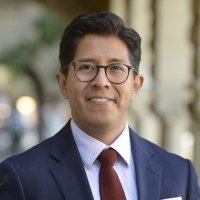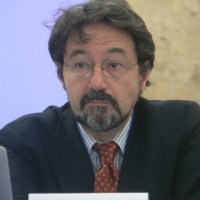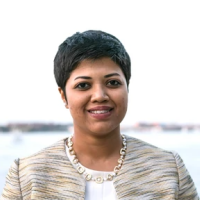Negotiated Inequality: Latin America and the Making of the Nuclear Club
The Martin J. Sherwin Fellowship Lecture
Global governance offers critical tools to address international security problems but can also enshrine inequalities that favor powerful states. Recent scholarship on lawmaking and nuclear politics explores hierarchies in international security and how developing countries navigate them as institutions develop. There is less attention to why developing countries accept unequal institutions during the design phase. I explore this question by examining the codification of the Treaty on the Non-Proliferation of Nuclear Weapons (NPT) in the 1960s and comparing the Brazilian and Mexican positions in this process. I argue that acceptance or rejection of governance inequalities in the NPT depended on whether developing states could participate in drafting the treaty and modify proposals to reflect their nuclear interests and tame asymmetries. Brazil and Mexico managed to reduce some NPT inequalities by securing prerogatives for developing countries and getting concessions from nuclear powers. At the same time, these Latin American countries participated in hierarchy-building from below by making this treaty more acceptable for other weaker states.
J. Luis Rodriguez is an assistant professor of international security and law at George Mason University’s Schar School for Policy and Government. His research analyzes how developing countries design nuclear nonproliferation and disarmament mechanisms, norms of humanitarian intervention, and regulations on emerging technologies with security applications. Dr. Rodriguez is an affiliate of Stanford University’s Center for International Security and Cooperation, where he was a Stanton Nuclear Security Postdoctoral Fellow and a Social Sciences Postdoctoral Fellow. He holds a Ph.D. and an M.A. in Political Science from Johns Hopkins University and a B.A. in International Relations from El Colegio de Mexico.
The Martin J. Sherwin Fellowship supports emerging scholars in the fields of nuclear policy and history research. Competitively selected junior researchers (post-doc/recent PhD/junior faculty) will receive a three to six-month residential fellowship to conduct independent research at the Wilson Center and in the Washington DC area. Fellows will receive office space at the Center, have access to Library of Congress holdings, and will present their work in a public forum during their fellowship tenure. To learn more or apply, click here.
Speaker

Moderator

Panelist

Hosted By

History and Public Policy Program
A leader in making key foreign policy records accessible and fostering informed scholarship, analysis, and discussion on international affairs, past and present. Read more


Nuclear Proliferation International History Project
The Nuclear Proliferation International History Project is a global network of individuals and institutions engaged in the study of international nuclear history through archival documents, oral history interviews, and other empirical sources. Read more


Latin America Program
The Wilson Center’s prestigious Latin America Program provides non-partisan expertise to a broad community of decision makers in the United States and Latin America on critical policy issues facing the Hemisphere. The Program provides insightful and actionable research for policymakers, private sector leaders, journalists, and public intellectuals in the United States and Latin America. To bridge the gap between scholarship and policy action, it fosters new inquiry, sponsors high-level public and private meetings among multiple stakeholders, and explores policy options to improve outcomes for citizens throughout the Americas. Drawing on the Wilson Center’s strength as the nation’s key non-partisan policy forum, the Program serves as a trusted source of analysis and a vital point of contact between the worlds of scholarship and action. Read more


Brazil Institute
The Brazil Institute—the only country-specific policy institution focused on Brazil in Washington—aims to deepen understanding of Brazil’s complex landscape and strengthen relations between Brazilian and US institutions across all sectors. Read more


